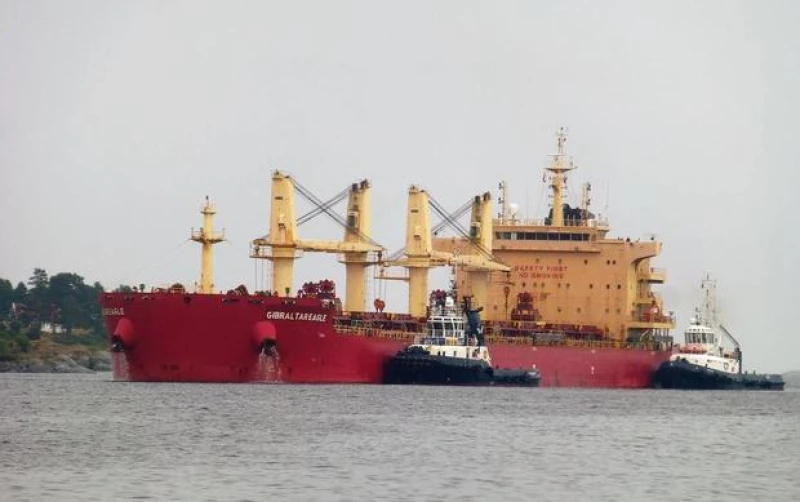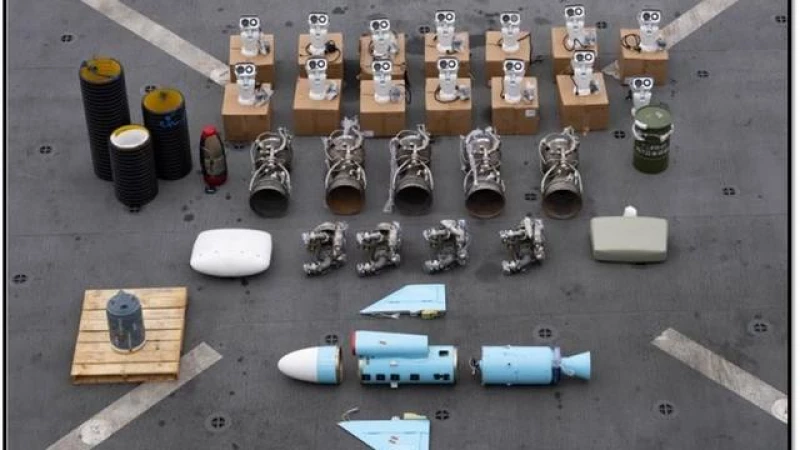U.S. Military Seizes Boatload of Weapons Destined for Houthi Rebels in Yemen
The U.S. military announced on Tuesday that it had intercepted a shipment of "advanced conventional weapons" that was being sent from Iran to the Houthi rebels in Yemen. According to Gen. Michael Erik Kurilla of the U.S. Central Command, this seizure provides clear evidence that Iran is continuing to supply the Houthis with deadly weaponry as they continue to target commercial vessels in the Red Sea.
Over the weekend, defense officials informed CBS News that the sailors who went missing had fallen overboard while attempting to board the Iranian vessel that was discovered to be carrying arms bound for Yemen. The boarding operation took place under challenging weather conditions, said the officials.
More Strikes Carried Out Against Houthi Targets in Yemen
An official from the United States confirmed on Tuesday that additional strikes were conducted overnight against Houthi targets in the large portion of Yemen controlled by the Iran-backed rebels. While no further details were provided, previous strikes, launched in collaboration with the United Kingdom and other allies, have targeted Houthi missile and drone storage and launch facilities, as well as other military infrastructure, according to the Pentagon and the U.K. Ministry of Defense.
Continued Houthi Attacks on Red Sea Shipping
Despite the ongoing strikes against the Houthis and the loss of two U.S. troops due to the seizure of Iranian-supplied advanced conventional weapons, the Houthi attacks on merchant vessels in the Red Sea have persisted. These attacks occur in the vital shipping lanes of the Middle East.
The Houthis have vowed to continue targeting ships that they believe are connected to Israel or its international allies. They justify their missile and drone launches as retaliation for the Israeli military operation in Gaza against the Iran-backed Palestinian militant group, Hamas.
On Monday, a U.S.-owned commercial vessel in the Red Sea was struck by a missile. The incident caused a fire in a cargo hold, but no serious damage or casualties were reported.
Ambrey was quoted by the AFP news agency as saying the ship had docked in Israel since the start of the Gaza war and was headed to the Suez Canal, but changed course to return to port after the attack.
Qatar warns against "focusing on the symptoms"
The prime minister of Qatar, which has served as a valuable intermediary for the U.S. and Israel in negotiations with Hamas throughout the Gaza war, suggested Tuesday that the efforts of the U.S. and its allies against the Houthis could prove futile, saying the Yemeni rebels' actions were rooted in the ongoing Gaza war, and military action alone "will not contain" them.
Speaking at the World Economic Forum's annual gathering in Davos, Switzerland, Prime Minister Sheikh Mohammed bin Abdulrahman Al Thani said concentrating on the Houthis' attacks on shipping was "focusing on the symptoms and not treating the real issue," which he said was Israel's war with Hamas.
"We should focus on the main conflict in Gaza and, as soon as it's defused, I believe everything else will be defused," said the Qatari premier, urging a two-state solution with an independent state created for the Palestinians alongside Israel, to end the conflict. President Biden has continued to push for negotiations on the long-elusive two-state solution, as has been U.S. policy for decades, but the current Israeli government of Prime Minister Benjamin Netanyahu is against such talks.

"The current situation in the region is a recipe for escalation in every direction," stated al Thani, suggesting that the ongoing conflict in Gaza could potentially lead to violence throughout the broader Middle East.







